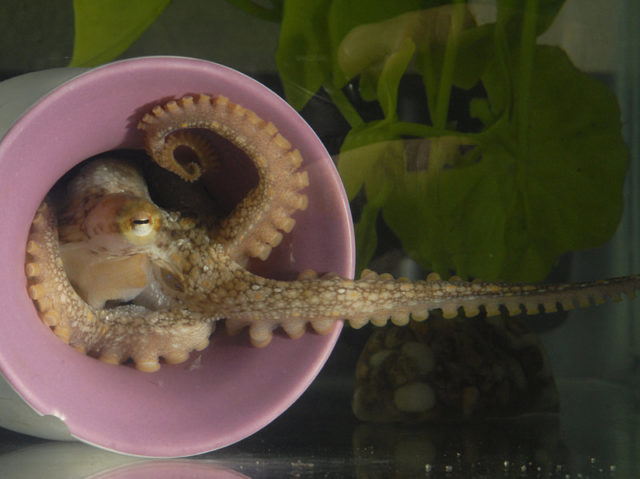At the Marine Biological Laboratory in Woods Hole, Mass., there’s a room filled with burbling aquariums. A lot of them have lids weighed down with big rocks.
“Octopuses are notorious for being able to, kind of, escape out of their enclosures,” says Bret Grasse, whose official title at MBL is “manager of cephalopod operations” — cephalopods being squid, cuttlefish and octopuses.
He’s part of a team that’s trying to figure out the best ways to raise these sea creatures in captivity, so that scientists can investigate their genes and learn the secrets of their strange, almost alien ways.
For decades, much of the basic research in biology has focused on just a few, well-studied model organisms like mice, fruit flies, worms and zebrafish.
That’s because these critters are easy to keep in the laboratory, and scientists have worked out how to routinely alter their genes, leading to all kinds of insights into behavior, diseases and possible treatments.
“With these organisms, you could understand what genes did by manipulating them,” says Josh Rosenthal, another biologist at MBL. “And that really became an indispensable part of biology.”
But it’s also meant that basic biology has ignored much of the animal kingdom, especially its more exotic denizens.
“We’re really missing out on, I would say, the diversity of biology’s solutions to problems,” Rosenthal notes.
That’s why he’s part of the effort to make squid and octopuses feasible to study in the lab, so researchers can start to explore their sophisticated brains and unusual behaviors.
But it’s a challenging endeavor. Almost all octopuses aren’t social — they will attack each other — and have to be kept in separate enclosures. What’s more, cephalopods are very sensitive to the chemistry of the water that surrounds them. They also grow extremely quickly, and that means they need lots of live food to fuel that growth.
The MBL researchers have focused on species from around the world that are small, relatively hardy and quick to reproduce. The pygmy zebra octopus, for example, grows only to the size of a grape and lays numerous clutches of eggs through its life.










